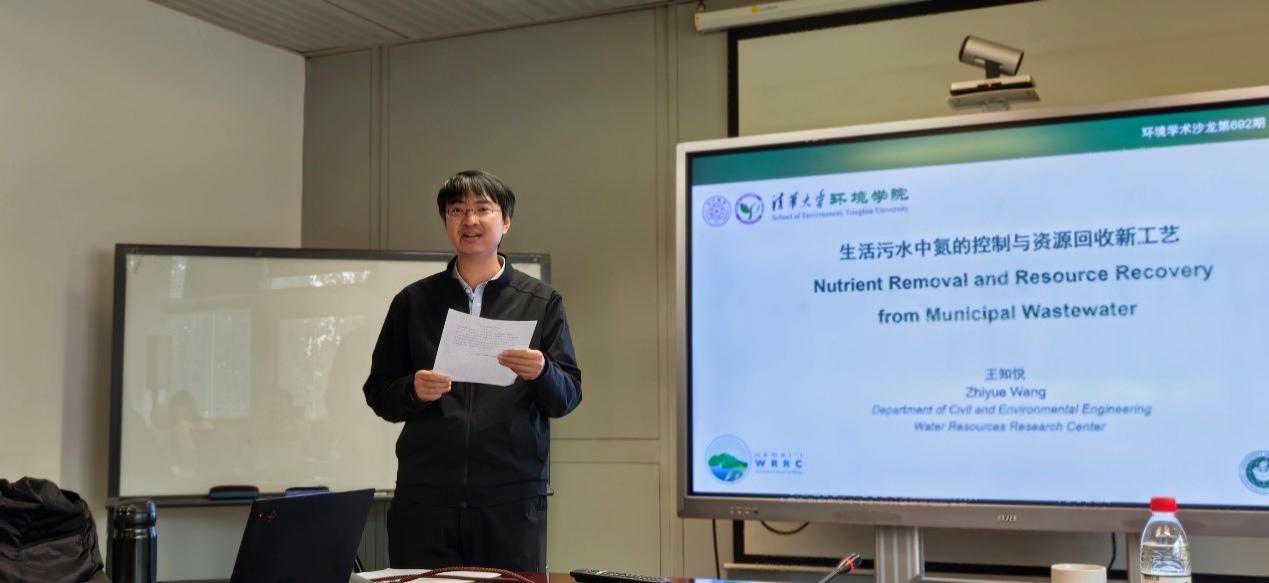On November 13, Assistant Professor Wang Zhiyue from the University of Hawaii was invited to attend the 692nd Environmental Academic Salon, where he presented an academic report titled "Nutrient Removal and Resource Recovery from Municipal Wastewater". The salon was hosted by Associate Professor Zhang Xiaoyuan from the School of Environment, Tsinghua University.

Wang Zhiyue presents his academic report
Wang Zhiyue introduced the current state and hazards of global nitrogen cycle overflow, as well as resource recovery from wastewater. He presented the discoveries and outcomes of his research team's investigation into the phenomenon of microbial partial denitrification (PD) producing abundant nitrous oxide (N2O). The team dissected the key microorganisms and their metabolic pathways involved in the denitrification process. They also developed a denitrification metabolic model to aid in the design of processes, which has demonstrated effective outcomes in the practical recovery of N2O from wastewater. The salon was marked by an enthusiastic exchange among the attending faculty and students.

Zhang Xiaoyuan hosts the academic salon
Wang Zhiyue, Assistant Professor in the Department of Civil, Environmental and Construction Engineering (CECE) and the Water Resources Research Center at the University of Hawaii at Mānoa. His main research focuses are on controlling greenhouse gas emissions from municipal wastewater treatment infrastructure and improving the sustainability of nitrogen and phosphorus nutrients management through innovative resource and energy recovery biotechnologies. He has participated in a range of research projects, including the recovery of N2O, the production of bioplastics with encapsulated methanotrophic bacteria, the degradation of plastics by mealworms, and the development of sludge dewatering technologies.





